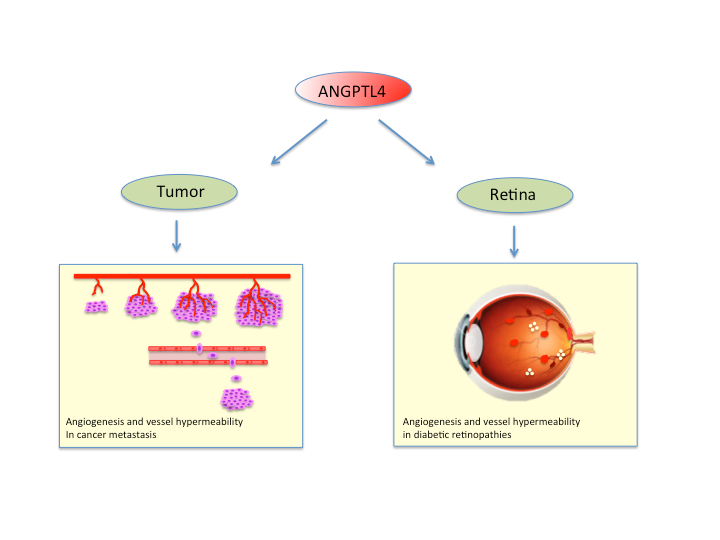contact
Kristen Gale
Program Administrative Specialist
Professor Silvia Montaner, MSc, PhD, MPH

Dr. Silvia Montaner is a Professor in the Department of Oncology and Diagnostic Sciences at the University of Maryland School of Dentistry and a member of the Molecular and Structural Biology Program of the Greenebaum Comprehensive Cancer Center. Dr. Montaner received her B.S. and M.Sc. in Biochemistry from the University of Murcia, Spain. She did her graduate training on the role of small GTPases in the regulation of gene transcription at the Autónoma University of Madrid, Spain, where she earned her Ph.D. in Biochemistry and Molecular Biology in 1997 (PhD Scholar Award). She received her Master of Public Health from the Comillas Pontifical University (ICADE) of Madrid in 1998. Dr. Montaner joined then the laboratory of Dr. Silvio Gutkind at the National Institutes of Health (Bethesda, MD), as an International Fulbright Scholar and Postdoctoral Fellow, to pursue research on the role of G-protein coupled receptors in pathological angiogenesis and tumor growth. She subsequently joined the faculty of the University of Maryland, Baltimore, School of Dentistry and the Greenebaum Comprehensive Cancer Center in 2004. Dr. Montaner is recognized nationally and internationally as a leader in the field of cell signal transduction associated with dysregulated angiogenesis. Her research laboratory currently studies abnormal neovascularization and vessel permeability in head and neck cancer and retinal diseases (including diabetic retinopathy). Dr. Montaner is the course director of the Physiology course for freshman students at the Dental School and serves as research mentor of many undergraduate, graduate and postgraduate students at UMB. She also serves in multiple school and university committees and national and international grant study sections and research advisory groups.
Academic Awards
B.S. in Biochemistry - Summa Cum Laude, University Academic Award, First National Graduation Award, Department of Education, Spain
Ph.D. in Biochemistry and Molecular Biology - PhD Scholar Award, Autónoma University
Master of Public Health - Gaspar Casal Foundation Award, Comillas Pontifical University
Postdoctoral training at the National Institutes of Health, Maryland - Fulbright Award, Fogarty International Fellowship, Fellows Award for Research Excellence
Major Teaching Responsibilities in Higher Education
Undergraduate Courses:
ODSC 518P Physiology, course director
GPAT 512 General Pathology
NPSC 518C Clinical Research Conferences
UMB Graduate Programs, School of Medicine and School of Dentistry:
Graduate Program in Life Sciences, Molecular Medicine Track (SOM)
Graduate Program in Life Sciences, Biochemistry and Molecular Biology Track (SOM)
Graduate Program in Biomedical Sciences (SOD)
Graduate Program in Experimental Pathology (SOD)
Research Interests
The growth of abnormal blood vessels (pathological angiogenesis) is a hallmark of human pathology and therapies targeting such proliferation are showing to have an impact on the treatment of many human disorders. My laboratory examines the molecular mechanisms regulating pathological angiogenesis and vessel hyperpermeability (leakage) focusing on two human diseases: head and neck squamous cell carcinoma (HNSCC), one of the most prevalent cancers worldwide, and ischemic retinal disease, one of the most common causes of vision impairment and blindness. In cancer, abnormal vascular growth promotes tumor development and dissemination of cancer cells to distal organs (i.e., tumor metastasis). In ischemic retinal disease, which includes diabetic retinopathy, retinal artery and vein occlusions and retinopathy of prematurity, damage to the retinal microvasculature triggers the expression of angiogenic factors that promote the formation of new immature and leaky blood vessels in the retina; these abnormal retinal blood vessels can cause profound loss of vision. By studying the molecular mechanism(s) leading to this abnormal vascular proliferation, we intend to identify novel molecular targets for the treatment of these disorders.
We have identified Angiopoietin-like 4 (ANGPTL4) as a vasoactive molecule that promotes neovascularization and loss of vessel integrity. ANGPTL4 is a hypoxia-inducible factor (HIF)-regulated factor with close homology to Angiopoietin 1 and Angiopoetin 2 (ANGPT1 and ANGPT2), two important proteins in vascular development and angiogenesis. ANGPTL4 is a multifunctional cytokine found in tissues as well as circulating in the bloodstream. Once the protein is translated, it is secreted and then cleaved into two major domains. The ANGPTL4 N-terminal domain (nANGPTL4) is involved in the metabolism of triglycerides and the control of glucose homeostasis and insulin sensitivity. Alternatively, the ANGPTL4 C-terminal domain (cANGPTL4) plays important roles in anoikis resistance, altered redox regulation, angiogenesis, and vascular hyperpermeability. Our laboratory has described an important role for ANGPTL4 as an angiogenic factor and a molecular therapeutic target in head and neck cancer and ischemic retinal disease. Please read more here about our specific research projects and bibliography.




